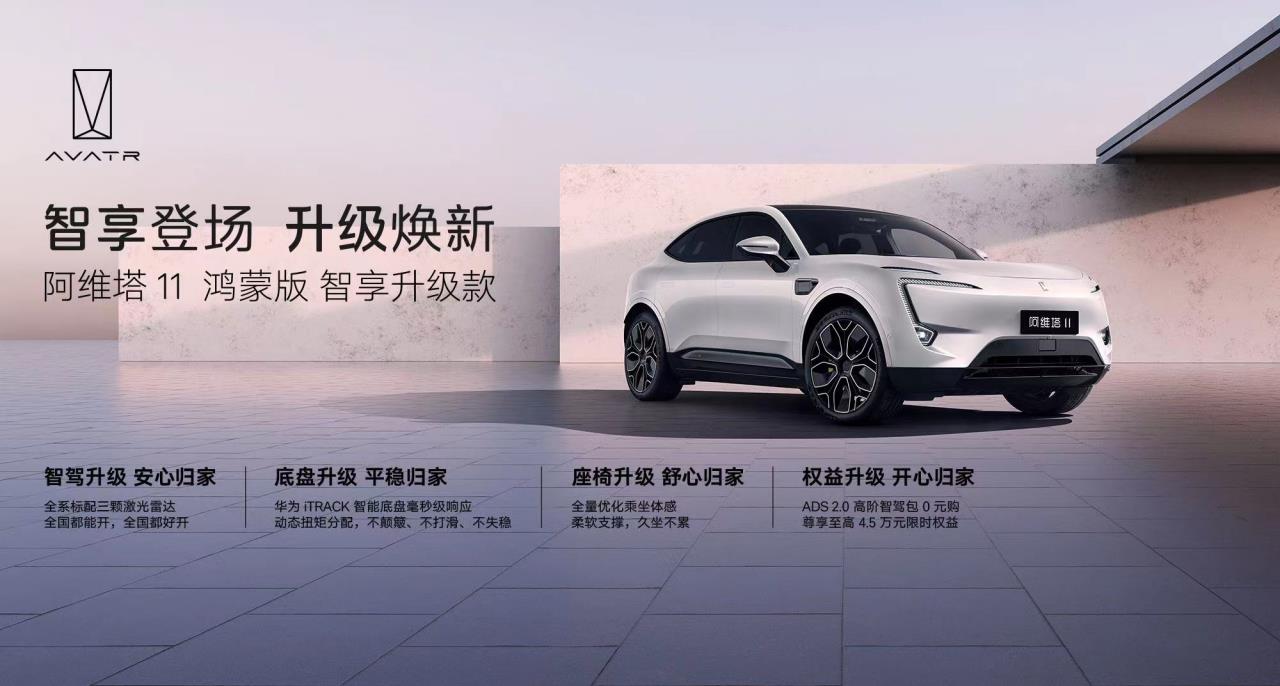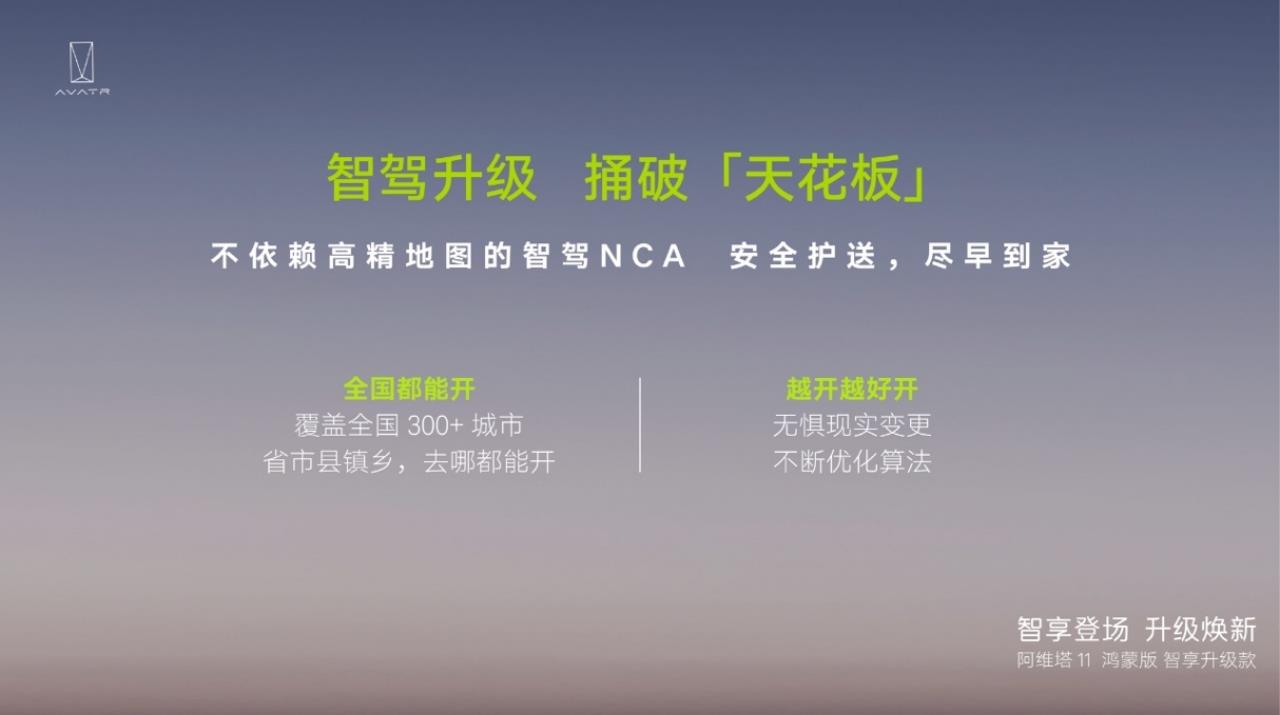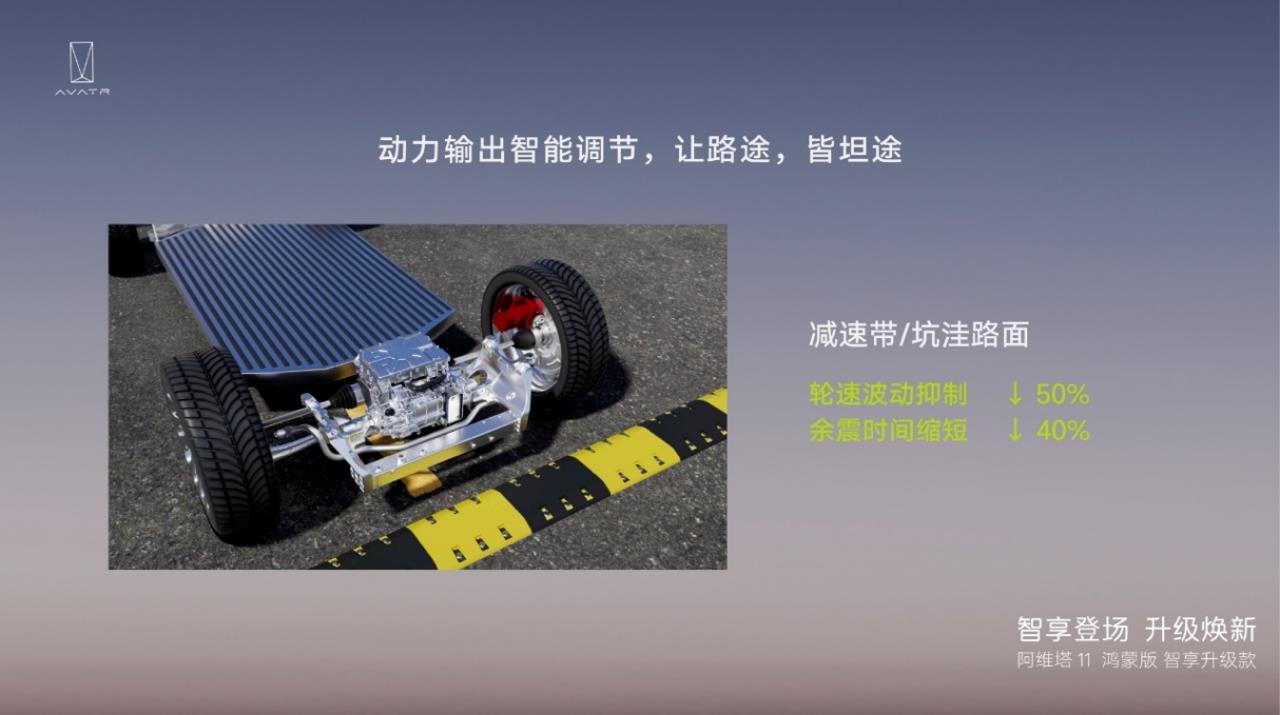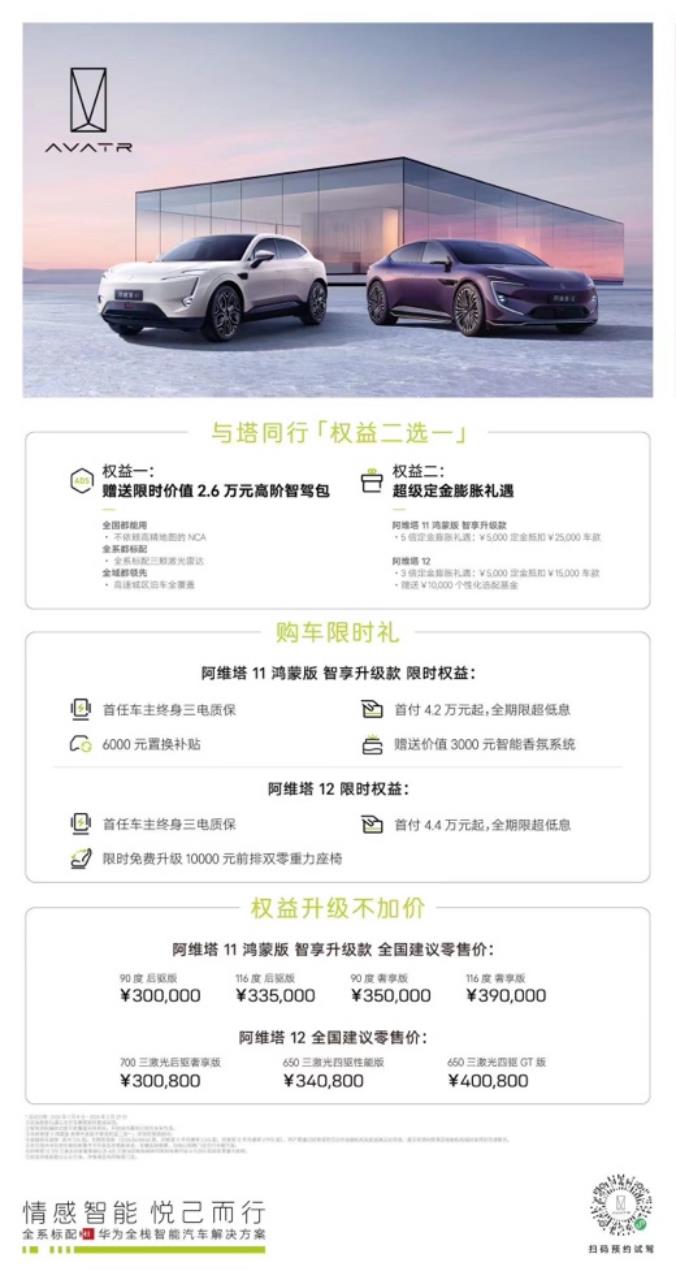On January 8, the official announcement of the Avita 11 Hongmeng Edition Smart Enjoy upgrade was listed. The car has mainly undergone four upgrades: smart driving upgrade, equipped with no map NCA function that does not rely on high-precision maps; comfort upgrade, four somatosensory optimization; chassis upgrade, new Huawei iTRACK function; rights upgrade, the highest "intelligent" rights and interests can be enjoyed for life. And the whole system does not increase the price, maintaining the 90-degree rear drive version 300,000 yuan, 116-degree rear drive version 335,000 yuan, 90-degree luxury version 350,000 yuan, 116-degree luxury version 390,000 yuan The price remains unchanged.

With the launch of the car, Avita has entered the era of "de-precision mapping" smart driving, effectively making up for the shortcomings of the high-precision map smart driving solution, not only solving the pain points of "follow the picture", but also unlocking more high-frequency smart driving scenarios. It is reported that its urban NCA smart driving function will unlock more than 300 cities at one time, bringing users a travel experience that "can be driven all over the country and is easy to drive all over the country".
Thanks to the industry’s top-class vehicle sensing and computing capabilities brought by the 3-laser radar that is fully equipped at the beginning, Avita 11’s smart driving NCA function that does not rely on high-precision maps can be quickly implemented. Avita 11’s smart driving system integrates road topology inference network (RCR) + the industry’s first GOD network to build road information in real time, keenly identify various obstacles, and improve driving safety for people and smart driving.

Avita 11’s intelligent driving system can make rapid and reasonable vehicle motion planning and path planning, and the driving style is more "human-like". In response to scenarios such as subway repair, tidal lanes, and temporary road changes caused by traffic control, the intelligent driving system can make up for the difference in the iteration cycle of high-precision maps, and truly can be opened without pictures, and complex road conditions will not be degraded. In response to daily commuting and self-driving inter-provincial travel scenarios, the intelligent driving system can independently choose roads with higher traffic efficiency.
Combined with user feedback, the car has also been optimized for the four body senses of the seat, such as legs, waist, back, and sitting posture, so that users can have a comfortable experience no matter which seat they take. At the same time, the chassis upgrade of the car is equipped with Huawei iTRACK architecture, which can realize ultra-fine road condition perception 10,000 times per second, and torque real-time adjustment of 1,000 times per second to achieve the best power output mode under different road conditions and create the best driving experience.

Huawei iTRACK function "makes the road smooth". For the most common speed bump scenarios in daily life, Huawei iTRACK accurately recognizes wheel speed fluctuations, and adjusts and controls torque within milliseconds to achieve rapid convergence. After actual measurement, wheel speed fluctuations can be reduced by 50%, and aftershock time can be reduced by 40%, thus effectively improving the comfort and safety of the whole vehicle and bringing users a better driving experience.
Benefit upgrade is convenient. From now until February 29, 2024, car buyers can choose one of the following benefits: Benefit 1, users who buy cars after January 8 will be given a high-end smart driving bag worth 26,000 yuan; Benefit 2, car buyers can enjoy a discount of 5,000 deposit to 25,000 yuan during the event. In addition, Avita also launched more car benefits for a limited time, including: the first owner’s lifetime Sandian quality assurance; 6,000 yuan replacement subsidy; gift intelligent fragrance system; down payment of 42,000 yuan, full-term ultra-low interest financial incentives, etc.

Upstream News, Wu Jian
Editor: Wang Xinyu, Editor in charge: Zheng Wei, Review: Zhao Lei
关于作者